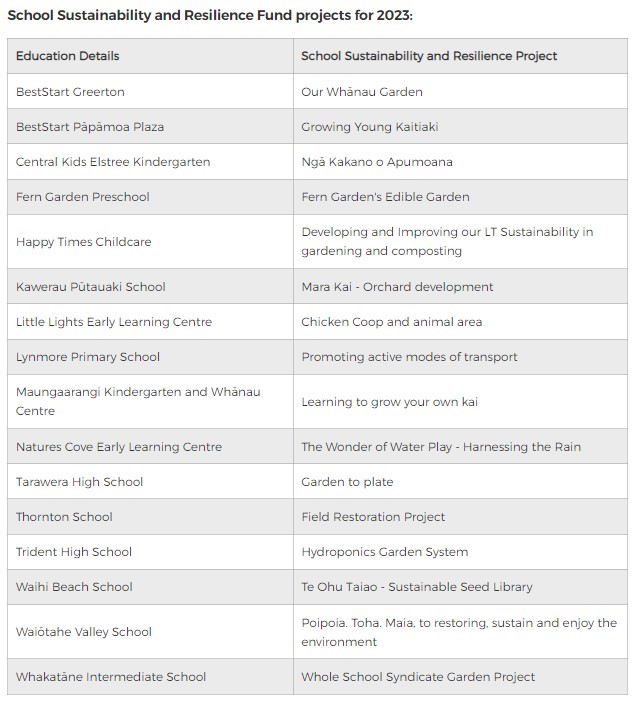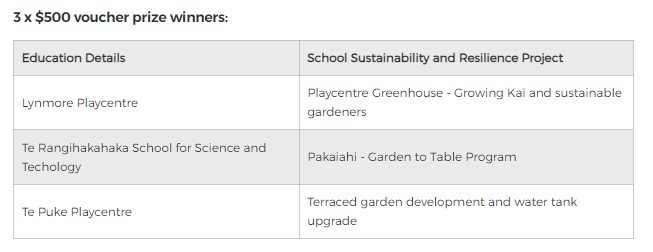Maungaarangi Kindergarten and Whānau Centre is a small kindergarten, but it has a big community behind it.
The Welcome Bay-based kindergarten was one of 16 education providers to receive funding from Toi Moana Bay of Plenty Regional Council's $50,000 School Sustainability and Resilience Fund for 2023.
The fund aims to support schools and early childhood centres to carry out sustainable projects and prepare for the impacts of climate change and natural hazards.
Each successful project was selected through a public voting round, while a youth panel then voted for more projects once the public voting closed.
.jpg) Aria Tyrrell and Ivy Powell sitting on some of the new garden beds at Welcome Bay Maungaarangi Kindergarten and Whānau Centre. Photo: Bay of Plenty Regional Council.
Aria Tyrrell and Ivy Powell sitting on some of the new garden beds at Welcome Bay Maungaarangi Kindergarten and Whānau Centre. Photo: Bay of Plenty Regional Council.
Maungaarangi Kindergarten and Whānau Centre head teacher Maria Trott says they were thrilled to be one of this year's successful applicants.
With the extra help from the fund, they will be able to install more garden beds, compost bins and purchase heritage seeds and vegetable plants to grow.
'Our kindergarten is full of active tamariki who are deeply connected to the whenua," says Maria.
"The learning we share with tamariki and whānau is invaluable. Planting their own seeds, nurturing seedlings, waiting and watching as the crop grows, harvesting it and then learning to prepare it and share kai together."
Toi Moana Community Engagement Team Leader Stephanie Macdonald says the Regional Council received 34 eligible projects this year which were put out to the community for voting.
"More than 700 voters went in and selected their favourite projects for this year's fund," says Stephanie.
There were only 73 votes between the most voted project and the least voted project.
Council received applications from across the region including Tauranga, Rotorua, Ōpōtiki, Te Puke, Kawerau, Katikati, Ōmokoroa, Whakatāne, Waihi from playcentres, kindergartens, primary, intermediates and high schools and kura.
Edible gardens, chicken coops, restoration, greenhouses, water play, sensory gardens and hydroponics were all projects the different education providers wanted help with sponsorship, she says.
Public online voting allocated 70 per cent of the available funding, with the remainder decided by a youth panel.
Stephanie says this year's youth panel consisted of 16 young people between 12 and 24 years old.
They had had the opportunity to consider all the remaining projects and vote for them after the public voting had closed, bringing the total number of funded projects up to 16.



.jpg)

0 comments
Leave a Comment
You must be logged in to make a comment.